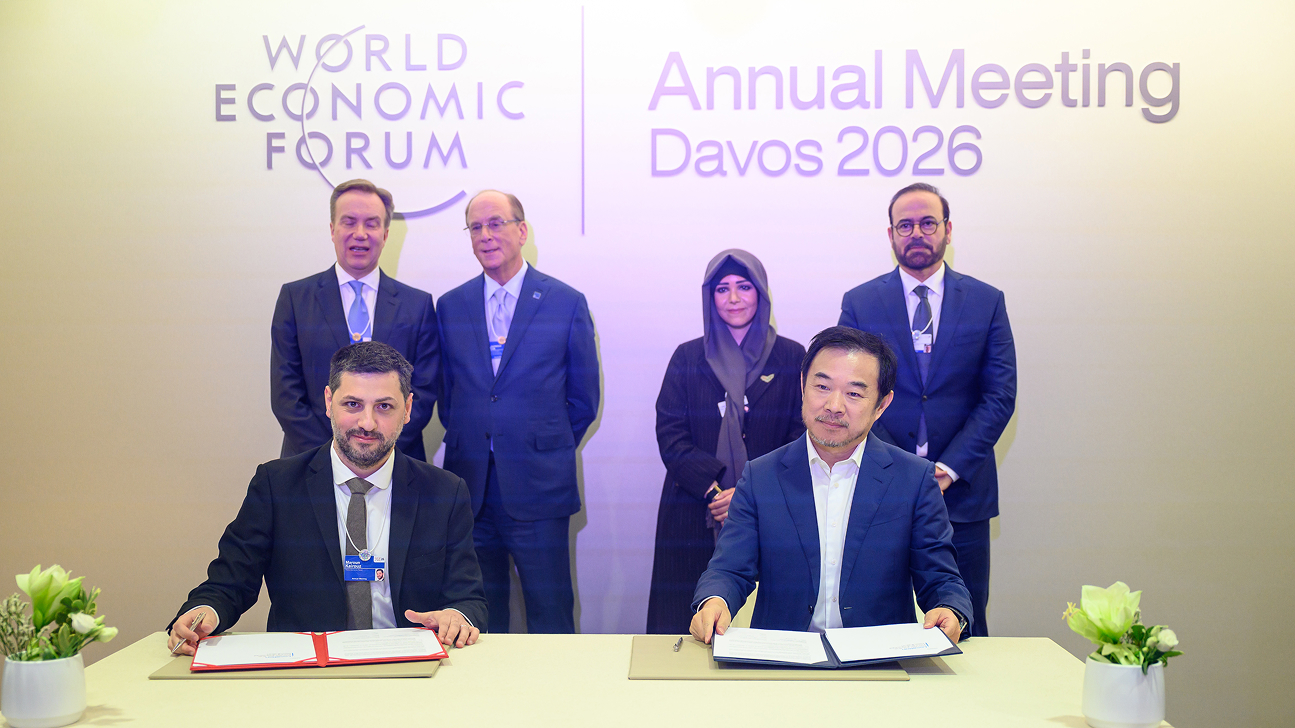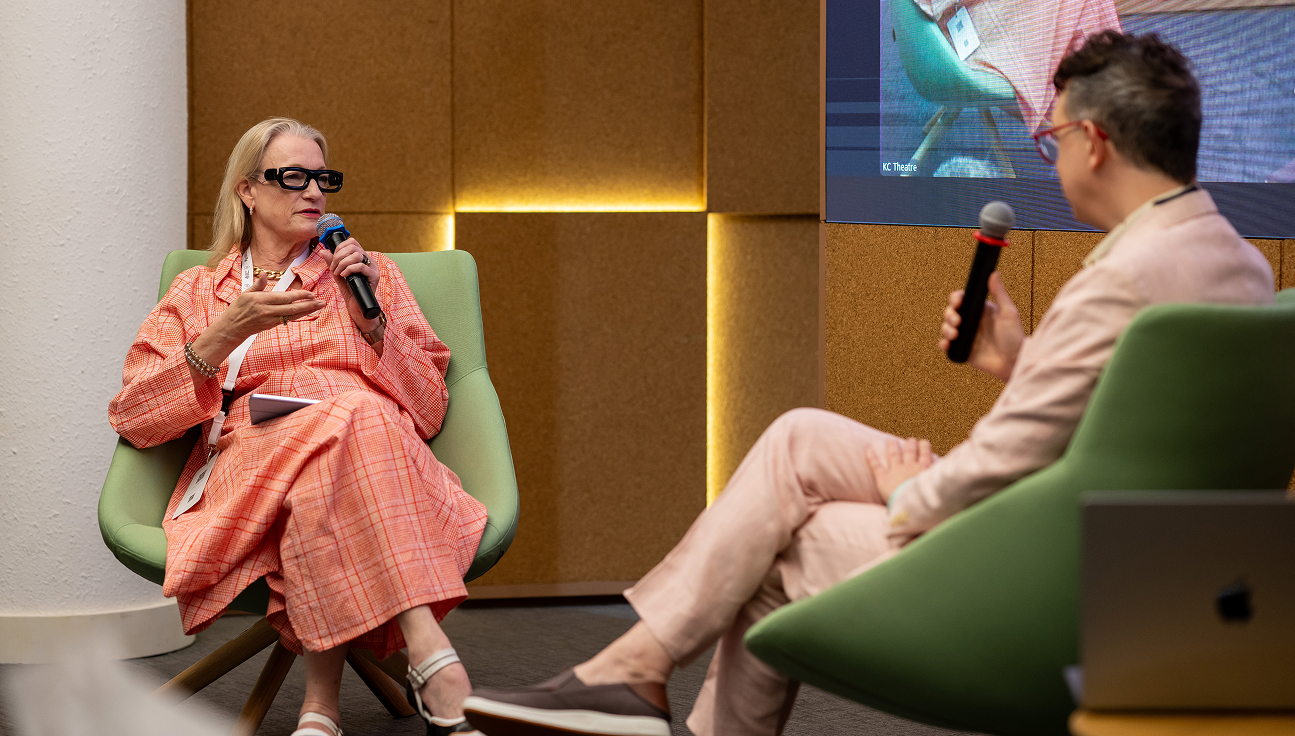Understanding faith in the age of AI
Thursday, July 24, 2025
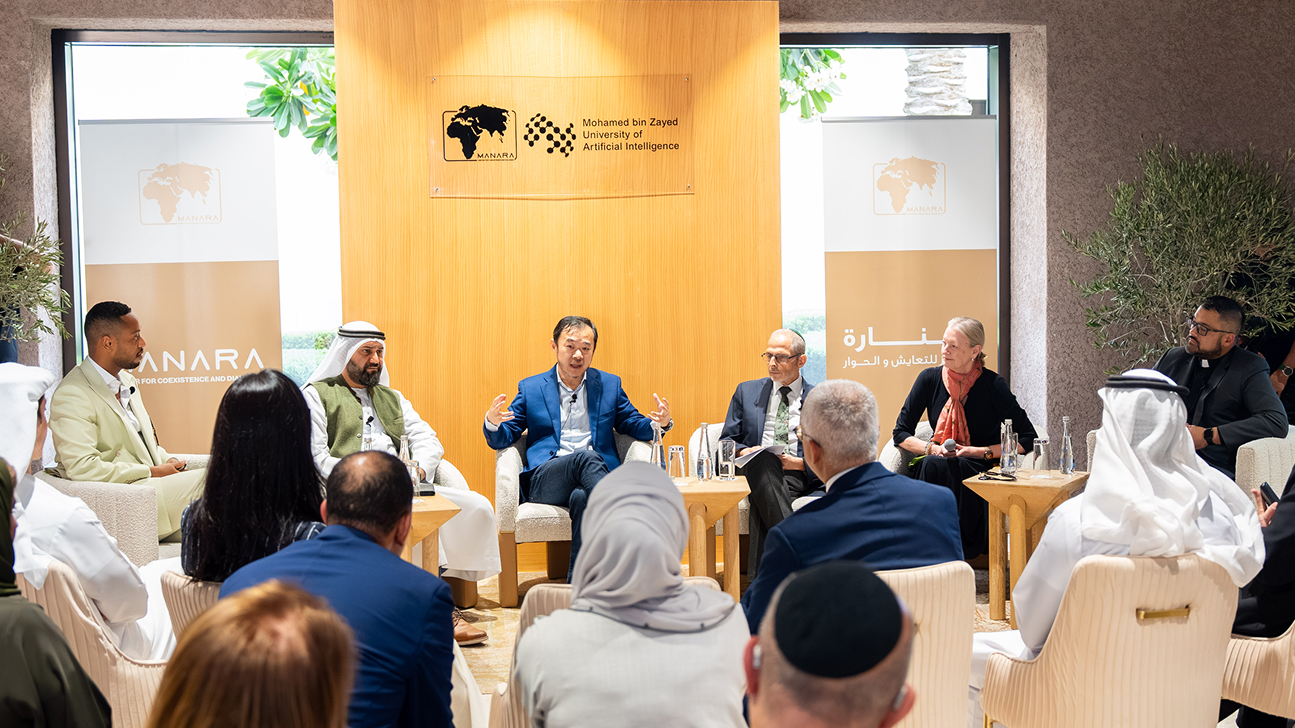
At a time when machines can simulate conversations, generate commentary on complex texts, and offer advice on life’s hardest questions, a critical question has emerged: what is the role of faith and spirituality in a world transformed by AI?
Scholars, religious leaders and AI experts from the UAE gathered at the Abrahamic Family House in Abu Dhabi to address this question and explore the connection and disconnection between AI, spirituality, and ethical values.
The panel discussion, Faith in the Age of Artificial Intelligence, was hosted by MBZUAI in collaboration with the Manara Center for Coexistence and Dialogue. Opening the event, His Excellency Dr. Ali Al Nuami, Chairman of the Manara Center, said: “You can’t exclude faith from anything related to development,” prompting the panel to address what it means to be human in an era of such rapid technological advances, and what spiritual traditions can offer in a world increasingly governed by data and algorithms.
Speakers included MBZUAI President and University Professor Eric Xing; Department Chair and Professor of Human-Computer Interaction at MBZUAI, Elizabeth Churchill; resident religious leader at the Moses Ben Maimon Synagogue, Rabbi Jeffrey Berger; Pastor Will Barkley of the Evangelical Community Church of Abu Dhabi; and Dr. Yusuf Jha of The UAE Council for Fatwa.
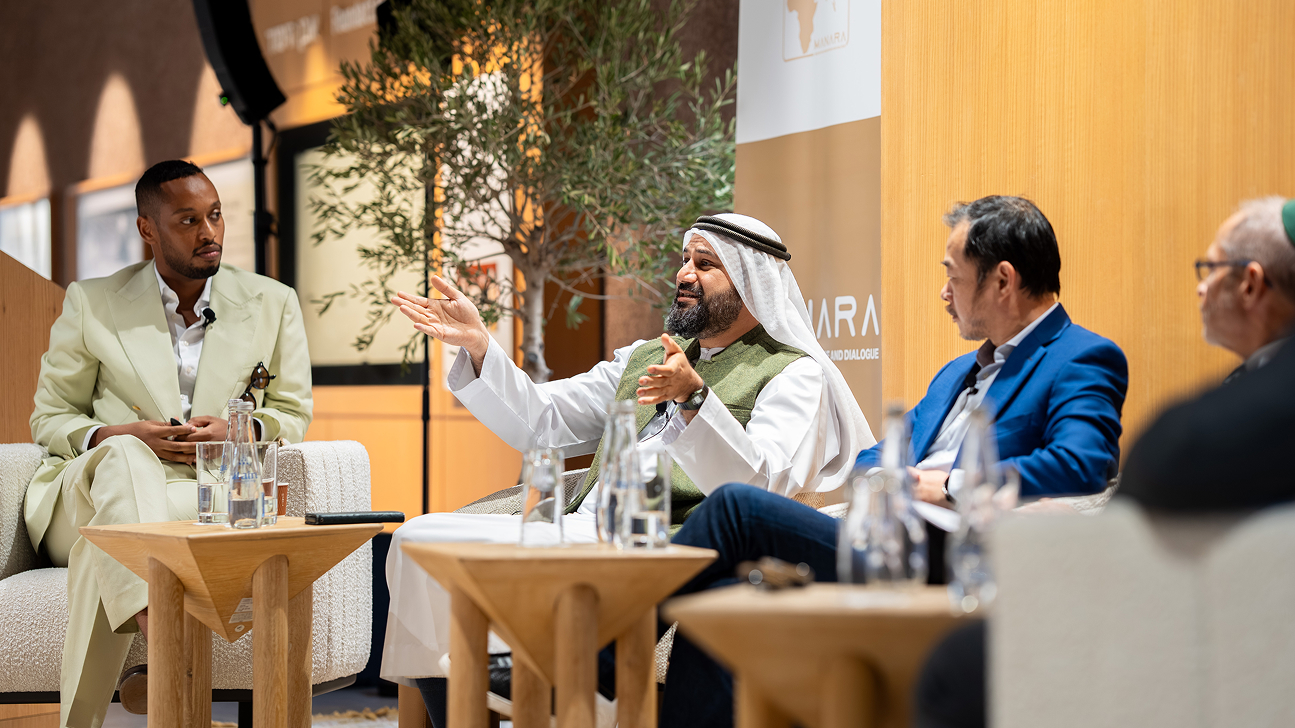
The myth of the machine
Definitions of what machines can and can’t do was a point of regular return for the panel as they established what separates AI from humans.
“AI, to the best of my capability of describing it, is a very fancy and complicated piece of algorithm,” explained Professor Xing, adding that – unlike people – AI does not think or reflect. “It is not necessarily a creature that can invent a task all by itself.”
Even advanced systems such as ChatGPT, he noted, merely simulate language by identifying patterns from an enormous trove of text: “It gives you something back as if you are talking to a person.” It may sound human, but it is far from being so.
For Rabbi Berger, the difference between man and machine begins with the soul. “Humans are unique in having the capacity for higher consciousness,” he said. “We believe that we are endowed with a soul, and that we are created in the image of the divine.”
In a similar vein, Dr. Jha introduced the Islamic view of the soul as something shaped by divine presence and memory, something that machines, however advanced, cannot grasp as “machines don’t have any self-reflexivity.”
Professor Churchill emphasized our collective nature as a defining factor of humanity. “We are not individuals. We are a collective that exchanges and discusses,” she said, adding that AIs cannot evolve their understanding through empathy, observation and discussion.
The idea of a lack of human exchange is one that has given rise to a concern over AI’s impact on relationships. Moderator Abdullahi Alim, Head of Community Engagement for The Academy at MBZUAI, pointed to recent research showing that young people are increasingly turning to generative AI for help with therapy, life planning and even existential questions – roles once filled by priests, rabbis, imams, and pastors.
“It’s tempting,” agreed Pastor William Barkley. “You’re typing in your thoughts and you’re getting human language back.” The illusion, he warned, is powerful, but it can be no true replacement for human connection. “There’s a real temptation to think I am interacting with somebody, a being. We crave to be known, to know others, to matter to other people, and that’s why human relationships are so important.”
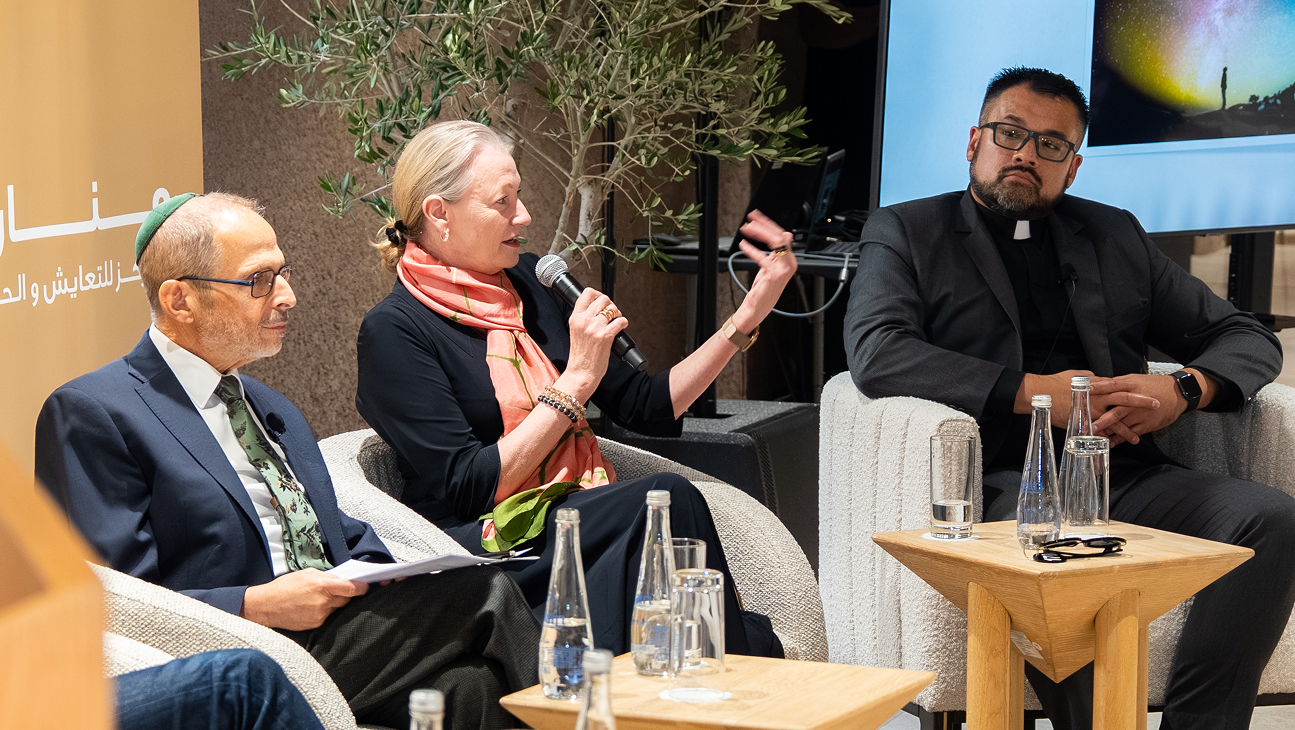
Lessons from history
Looking to the past for clues on how to navigate the impact of AI, Dr. Jha urged caution over wild abandon, using the example of the printing press. He argued that the Ottoman Empire’s reluctance to embrace it – often dismissed as anti-progress – actually offered deeper perspectives to learn from.
“They saw something sacred as potentially being lost,” he said, pointing to concerns that the meditative practice of calligraphy would be compromised, along with its deeper spiritual connotations. “From the point of how you handle the pen, to the stillness, to the types of strokes – there’s no irony that this was the premier form of Islamic art.”
He also drew comparisons to the samurai in Japan, who resisted industrialization not out of nostalgia, but to preserve a spiritual code. “They were worried about losing this Bushido,” he said. “They were opposing the loss of this sacred element.”
The panelists were unified in the belief that a safe future with AI will rely on us protecting and exercising aspects of ourselves that are fundamentally human.
“Every new technology comes with a very mixed and complicated bag of responses. But I have faith that people will figure it out,” said Professor Xing.
“AI has ushered in a phase where people may want to give up their old way of living and explore something new. But other people may find AI to be a great tool to rediscover something that was lost and make that more accessible.”
Professor Churchill reiterated the importance of communication: “There is a moral imperative for us to talk to each other and to reach out to each other when we see people diving into fear, diving into disappearance, diving into the immersion, and not experiencing, growing and learning.”
“That’s where spiritual leaders really are absolutely critical, because they bring community back,” she said.
Pastor Barkley agreed that communication will be key in the months and years ahead as more – and deeper – questions emerge.
“I do think that there will be a real question, if it’s not here yet, of epistemology,” he said. “How do we know what is truly real? Who is the authority over the data? Will there be transparency and an understanding of AI’s reasoning for landing on a particular answer? I think this will have to be worked through.”
Rabbi Berger urged us to consider young people’s use of AI and its “possible consequences on their intellectual and neurological development”, while Dr. Jha emphasized AI’s potential to change us, suggesting that we should use this as motivation to “enter the contemplative space”.
“What will protect us from the inevitable pull of reducing the horizons of your being to extremes is to realize the vastness that lies within,” he said. “If you can do that, then this becomes a protective dimension for AI to remain a tool, and to explore it to the best of your ability, and to marvel at all it has to offer.”
Rather than replace human purpose, AI has the potential to illuminate it. But as this discussion underlined, we must bring our full humanity to the table in order for this to happen. Not just as users, but as thinkers, believers, and moral beings.
In closing the event, Bakhita Al Rumeithi, executive director of the Manara Center for Coexistence and Dialogue, said: “AI is not just a tool, it’s a mirror. It reflects our fears, our hopes, our power, and our blind spots. It asks us urgently, what kind of world will we build with it?”
A question worth our continuous attention.
- Human–computer interaction ,
- panel ,
- conversation ,
- faith ,
- spirituality ,
- religion ,
- connection ,
- discussion ,
Related
MBZUAI and Minerva Humanoids announce strategic research partnership to advance humanoid robotics for applications in the energy sector
The partnership will facilitate the development of next-generation humanoid robotics tailored for safety-critical industrial operations.
Read MoreMBZUAI signs agreement with World Economic Forum as Centre for the Fourth Industrial Revolution (C4IR)
MBZUAI will launch the Centre for Intelligent Future as a global platform – connecting AI research with.....
- social ,
- humanity ,
- economic ,
- WEF ,
- World Economic Forum ,
- partnership ,
Designing the human side of AI
MBZUAI’s inaugural HCI Symposium explored how people will live and work alongside AI, and how to ensure.....
Read More
